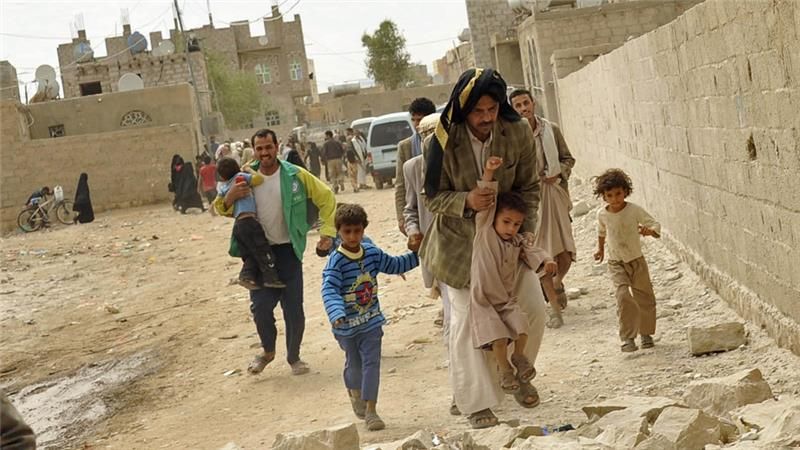
By Max Kronstadt
Ask anyone in the U.S. Department of Defense why there are American troops and planes fighting in the Syrian Civil War. They’ll probably talk to you about the danger of letting chemical weapon use go unregulated, or about the plight of people abused and killed by their own government just for their desire to be free. But if you ask them why the U.S. government continues to help Saudi Arabia and its allies fight a bloody and destructive proxy war in Yemen, they might not have a good answer.
Looking at the two conflicts side-by-side provides some interesting insight into American goals abroad, particularly in the Middle East. They reveal that … the U.S. government is playing a geopolitical game similar to many other major regional powers. In fact, in few instances is this more evident than in the problematic allegiance between the U.S. and the Saudis and the constantly devolving situation in Yemen.
The Saudis bought $112 billion worth of U.S. arms during the eight years of the Obama administration, which ranked them as the number one purchaser of U.S. arms between 2011 and 2015. The deals have shrunk slightly in the past two years—primarily because falling oil prices have hurt the Saudi economy—but President Trump announced a tentative plan for a $110 billion deal during his visit to the nation.
Meanwhile, war in Yemen has created one of the worst humanitarian crises in recent history. Saudi bombs and ground troops have killed thousands of civilian residents of Sana. Over half a million people are sick with cholera because the constant bombings destroyed the sewage system and contaminated the drinking water. The Saudi government decided to shut down the airport in Sana’a, so medical professionals and supplies haven’t been able to get in or out. Hunger and malnutrition are at near famine levels due to a lack of resources and an inability to receive aid.
The war began in 2014 when Houthi Ansarullah revolutionaries took control of the government. …
Since then, the Saudis have led a coalition alongside the former regime of Yemen, in an attempt to retake the government from the Houthis. In doing so, they have created hell on earth in Sana’a and the surrounding areas.
…The total war tactics of the Saudis have affected far more than the Houthis. Yemen may never be the same.
As of now, the war shows no sign of abating. The Houthis continue to maintain the right to govern and claim that their actions in 2014 have caused overall positive changes in Yemen. The Saudis are likewise determined to fight until their goals are achieved, and they have the resources to continue for a long time.
Arguably, the only group that could potentially stop the war is the U.S. government. The leverage of withholding an arms deal is significant and could potentially change the Saudi government’s mind—Yemen is a relatively small strategic goal for them. Yet bombs falling over Sana’a still say “Made in the USA.”
Why Saudi Arabia is such an important geopolitical and economic ally of the United States is an unclear, complex question that deserves future discussion and research. What is clear to me, and what is most important in the context of this argument, is that while the U.S. government may claim moral supremacy and righteousness in its military forays in the Middle East, that claim is inconsistent with reality, particularly when it comes to war in Yemen and allegiance with Saudi Arabia. Peace in the Middle East may never be achieved as long as the world’s most powerful military uses its might to promote its own interests, not peace.
Source: The Catalyst, Edited by Website Team